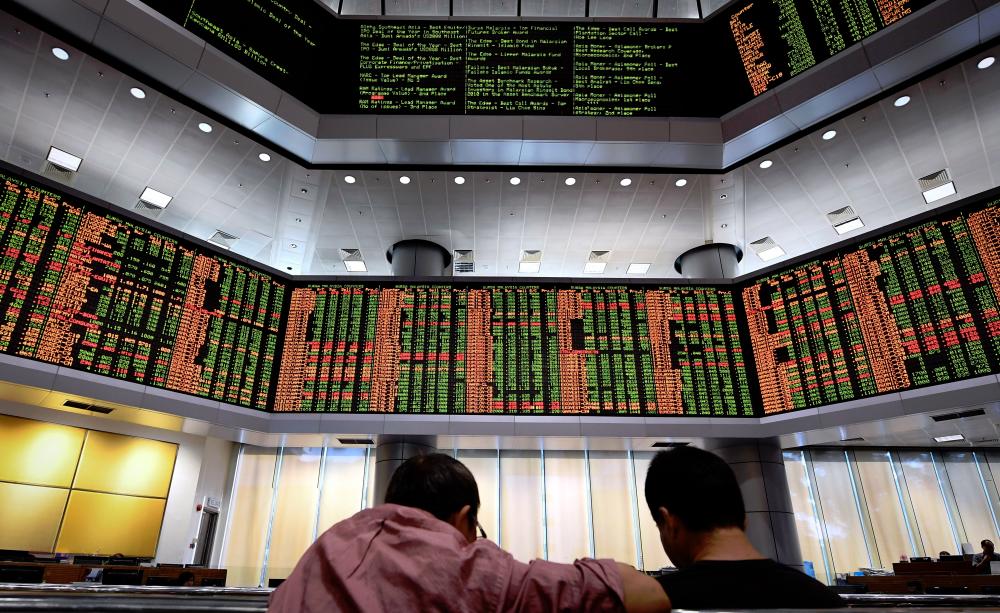PETALING JAYA: The oil price rout triggered panic selling on Bursa Malaysia today, with the FBM KLCI plunging as much as 60.45 points or 4.1% to 1,422.65 points at one stage, the biggest drop since the 2008 global financial crisis.
However, the key index managed to claw back some ground to end down 58.94 points 3.97% to 1,424.16 points, the lowest since 2011, erasing RM79.5 billion from market capitalisation. Year to date, it has lost 10.4%.
The sell-off came as oil prices plunged more than 30% following the collapse of talks between Opec and Russia on supply curbs that sent global crude and equity markets crashing. In response to the breakdown in talks, Saudi Arabia, the de facto leader of Opec, slashed prices and set plans for a big increase in crude production next month.
Brent crude futures, the international benchmark, were 25% lower at US$35.50 a barrel by 1130 GMT, after earlier diving to US$31.02, their lowest since Feb 12, 2016.
The oil price meltdown is compounding the uncertainties over the global and local economies amid the Covid-19 outbreak.
Elsewhere, the ringgit closed 0.9% lower at 4.2130 against the US dollar, from 4.1755 last Friday, and the May crude palm oil futures contract was down RM123 to RM2,328 per tonne.
On Bursa Malaysia, there were 1,139 losers against 120 gainers. All indices were in the red, with the energy index recording the steepest fall of 25.39% to 754.95 points, followed by the industrial products & services index (-10.74%) and technology index (-10.1%).
Turnover was at 6.66 billion shares valued at RM3.63 billion.
Oil and gas (O&G) stocks were the top actives on the local bourse with a handful of them hitting limit down – Dayang Enterprise Holdings, Wah Seong Corp, Carimin Petroleum, Naim Holdings and Petra Energy.
Global equities retreated to a bear market amid a steep sell-off in O&G stocks.
Australia’s S&P/ASX 200 Index slumped over 7%, Tokyo’s Nikkei 225 Index sank over 5%, and Hong Kong’s Hang Seng Index and South Korea’s Kospi Index dived over 4% each. Currencies of oil-exporting countries Russia and Mexico tumbled as much as 7%.
Against the backdrop of Covid-19, change in government and sudden collapse of oil prices, research house KAF cut its index target for the FBM KLCI from 1,530 points to 1,390 points.
It said the last time the market traded down to the trough levels was in 2015 when risk aversion was similarly elevated due to macro worries; while previous down cycles showed that the market should rebound if valuation fell to this level.
“But this time around, the bounce off the trough may not gain traction in the absence of waning liquidity support and a bad-to-worse earnings downgrading cycle. Therefore, we believe that valuations may oscillate around the trough levels for an extended time,” said KAF.
Rakuten Trade noticed some funds were already heading towards safe-haven assets such as gold, which could see more upside. “Looking ahead, we expect prevailing consolidation to continue with more downside for the equity markets,” it said.













